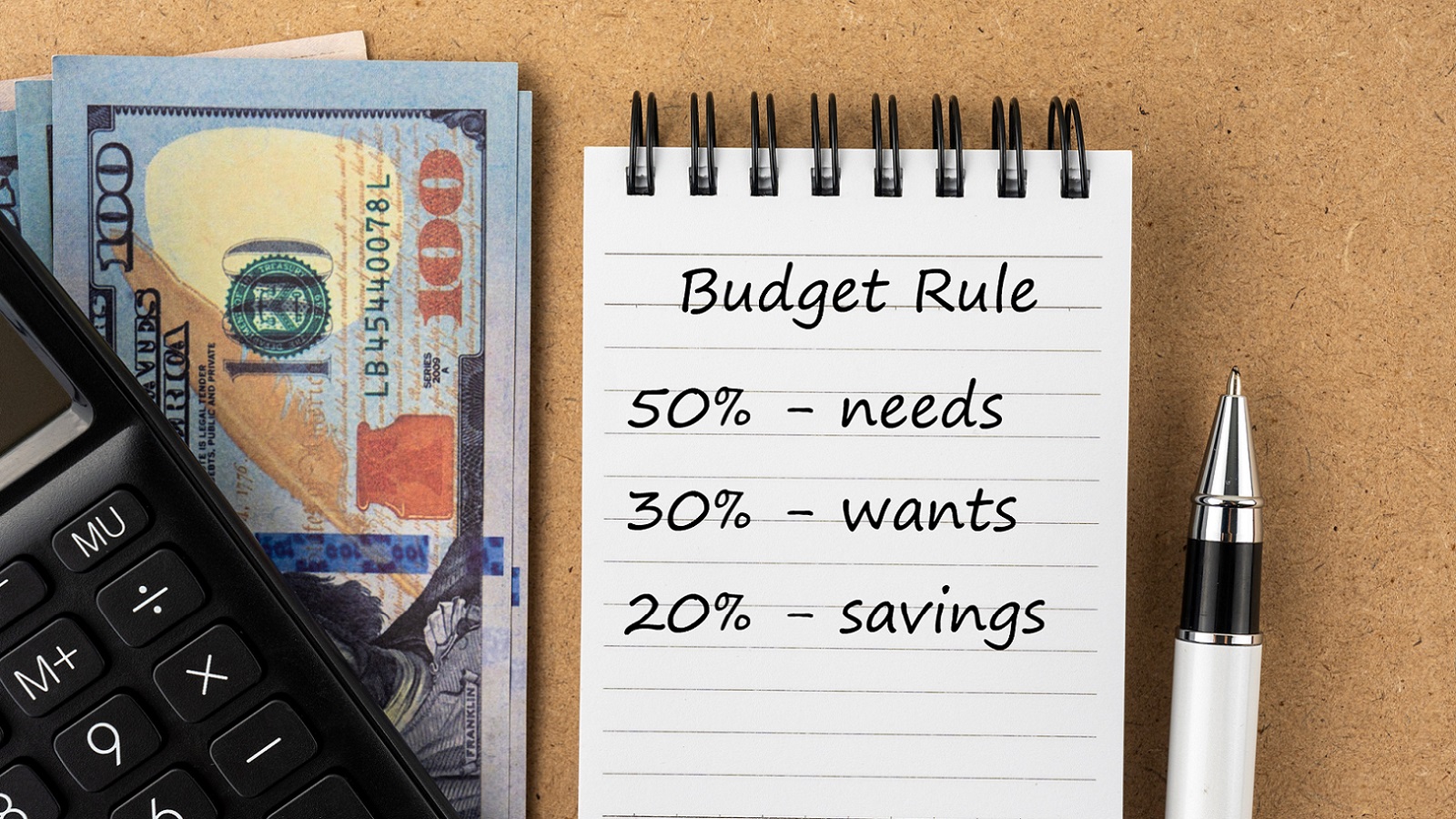What to Do in Case of Financial Emergency
If you have yet to build up an emergency fund, consider these options to help cover any big, unexpected costs.

Profit and prosper with the best of Kiplinger's advice on investing, taxes, retirement, personal finance and much more. Delivered daily. Enter your email in the box and click Sign Me Up.
You are now subscribed
Your newsletter sign-up was successful
Want to add more newsletters?

Delivered daily
Kiplinger Today
Profit and prosper with the best of Kiplinger's advice on investing, taxes, retirement, personal finance and much more delivered daily. Smart money moves start here.

Sent five days a week
Kiplinger A Step Ahead
Get practical help to make better financial decisions in your everyday life, from spending to savings on top deals.

Delivered daily
Kiplinger Closing Bell
Get today's biggest financial and investing headlines delivered to your inbox every day the U.S. stock market is open.

Sent twice a week
Kiplinger Adviser Intel
Financial pros across the country share best practices and fresh tactics to preserve and grow your wealth.

Delivered weekly
Kiplinger Tax Tips
Trim your federal and state tax bills with practical tax-planning and tax-cutting strategies.

Sent twice a week
Kiplinger Retirement Tips
Your twice-a-week guide to planning and enjoying a financially secure and richly rewarding retirement

Sent bimonthly.
Kiplinger Adviser Angle
Insights for advisers, wealth managers and other financial professionals.

Sent twice a week
Kiplinger Investing Weekly
Your twice-a-week roundup of promising stocks, funds, companies and industries you should consider, ones you should avoid, and why.

Sent weekly for six weeks
Kiplinger Invest for Retirement
Your step-by-step six-part series on how to invest for retirement, from devising a successful strategy to exactly which investments to choose.
Sooner or later, you're bound to get hit with an unexpected and eye-popping cost. Maybe a hospital stay will slam you with thousands of dollars in out-of-pocket charges, expensive car repairs will take you for a ride or Uncle Sam will send you a hefty tax bill. Ideally, you've stashed at least six months' worth of living expenses in a savings account to help in situations like these (or in case a job loss stunts your income for a while). But especially for young people who haven't had much time to save, sometimes the cash isn't there.
You may be tempted by easy sources of money that will actually bury you deeper in debt. For instance, a payday loan requires you to pay back the full loan amount from your next paycheck. Sounds simple, but it could come at an annual interest rate of about 400%, according to The Pew Charitable Trusts, and borrowers often struggle for months to pay back the loans. Another costly option is a cash advance through your credit card. You'll usually pay a fee of 3% to 5% of the amount you withdraw or $10 — whichever is higher — and the interest charge is often 20% or more. On top of that, interest accrues immediately, rather than after a grace period has passed as with a standard credit card purchase.
Instead, consider four smarter ways to pay for emergencies when you don't have an emergency fund.
From just $107.88 $24.99 for Kiplinger Personal Finance
Become a smarter, better informed investor. Subscribe from just $107.88 $24.99, plus get up to 4 Special Issues

Sign up for Kiplinger’s Free Newsletters
Profit and prosper with the best of expert advice on investing, taxes, retirement, personal finance and more - straight to your e-mail.
Profit and prosper with the best of expert advice - straight to your e-mail.
(Once your current crisis has passed, take some time to evaluate how to prepare for the next big expense, says certified financial planner Brenda Knox, president of Financial Elements. Even on a tight budget, you can find ways to save money, such as cutting out small, discretionary expenses. For more tips, see 7 Strategies to Build an Emergency Fund.)
1. Sign up for a payment plan.
See whether you can set up a plan that would allow you to spread payments for the bill over a few months or more. "Most industries that commonly create large and unexpected expenses have payment-plan options. You just have to ask about them," says Alan Moore, a certified financial planner in Bozeman, Mont.
Some hospitals, doctor's offices and dentist offices set up payment plans with patients. The IRS allows those who can't pay a tax bill in full to make monthly payments through an installment agreement. Before you seal the deal, consider the interest rate and other fees you may be charged. With the IRS installment agreement, for example, you will pay a setup fee, which varies depending on your income and how you pay, as well as interest (the federal short-term rate plus 3%, adjusted quarterly) and a monthly 0.25% late-payment penalty.
You could also try to negotiate for a lower bill. A hospital, for example, may accept less than you owe if you hand over a lump sum rather than make monthly payments. Don't be afraid to explain that you're just getting on your feet financially. Small businesses may be especially flexible and sympathetic to a young person starting out, says Knox.
2. Ask Mom and Dad for a loan — the right way.
Going to your parents for money isn't an earth-shattering idea. The trick is to put some thought into it. First, consider whether they are in a position to assist you. Your parents shouldn't have to go broke financing your bailout, after all.
If you decide to ask them for help, figure out how much you would like to borrow, the term over which you would repay a loan and the interest rate you would pay, says certified financial planner Cheryl A. Costa, a principal at Forteris Wealth Management. "Parents usually have cash sitting in checking or savings accounts earning next to nothing," she says. "If a child pays an interest rate of 2% to 3%, it's a win-win."
Once you come to an agreement, put it in writing. Both you and your parents should sign it — and it's not a bad idea to have a third-party witness present in case there's any dispute in the future, says Megan Rindskopf, a certified financial planner with Clearview Wealth Management. Or you could use a site such as LendingKarma.com or LoanBack.com (each charges $30 for a basic package) to set up a loan, including a payment schedule and e-mail reminders. (Bonus: Even if your parents are willing to be less formal with a loan, you'll probably get brownie points for coming to them in such a mature, responsible manner.)
3. Tap your Roth IRA.
Pulling money from retirement savings isn't optimal. But the good news about tapping a Roth IRA is that you can withdraw contributions that you've made to the account without incurring taxes or penalties. (If you withdraw earnings on your investments in the account, however, you could be hit with taxes and penalties. For more on IRA withdrawal rules, see 8 Reasons You Need a Roth IRA Now.)
4. Use credit cards wisely.
Some advisers recommend that young people steer clear of credit cards in a pinch. For one, the interest charges can get ugly. If you put $3,000 on a card with a 22% interest rate, for example, and made a $90 payment each month, it would take more than four years to cover the bill—and you'd pay $1,679 in interest along the way. (Use Bankrate's Credit Card calculator to test other scenarios.) Plus, falling behind on payments or creating a high level of debt as a proportion of your credit limits could cause your credit score to suffer.
If you have good credit, a reliable stream of income and the ability to pay off your debt within a year or so, opening a credit card with a 0% introductory annual percentage rate might work for you. But at the end of the introductory period (often up to 18 months), the rate will jump—sometimes to as high as 22%, depending on your creditworthiness. Think carefully about whether you can pay off the balance on time before you go this route. And be aware that if you apply for a few credit cards in a short period, your credit score could take a hit.
Profit and prosper with the best of Kiplinger's advice on investing, taxes, retirement, personal finance and much more. Delivered daily. Enter your email in the box and click Sign Me Up.

Lisa has been the editor of Kiplinger Personal Finance since June 2023. Previously, she spent more than a decade reporting and writing for the magazine on a variety of topics, including credit, banking and retirement. She has shared her expertise as a guest on the Today Show, CNN, Fox, NPR, Cheddar and many other media outlets around the nation. Lisa graduated from Ball State University and received the school’s “Graduate of the Last Decade” award in 2014. A military spouse, she has moved around the U.S. and currently lives in the Philadelphia area with her husband and two sons.
-
 Nasdaq Leads a Rocky Risk-On Rally: Stock Market Today
Nasdaq Leads a Rocky Risk-On Rally: Stock Market TodayAnother worrying bout of late-session weakness couldn't take down the main equity indexes on Wednesday.
-
 Quiz: Do You Know How to Avoid the "Medigap Trap?"
Quiz: Do You Know How to Avoid the "Medigap Trap?"Quiz Test your basic knowledge of the "Medigap Trap" in our quick quiz.
-
 5 Top Tax-Efficient Mutual Funds for Smarter Investing
5 Top Tax-Efficient Mutual Funds for Smarter InvestingMutual funds are many things, but "tax-friendly" usually isn't one of them. These are the exceptions.
-
 I Need to Cut $1,000 From My Monthly Budget, and I've Already Given Up Starbucks and Dining Out. What Else Can I Do?
I Need to Cut $1,000 From My Monthly Budget, and I've Already Given Up Starbucks and Dining Out. What Else Can I Do?Here are some creative ways to save up to $1,000 a month, even if you feel like you've already made all of the obvious cuts.
-
 I'm a Government Employee and Need to Get By Until the Shutdown Ends. What Can I Do?
I'm a Government Employee and Need to Get By Until the Shutdown Ends. What Can I Do?The second-longest shutdown in history is leaving many federal workers with bills due and no paycheck to cover them. Here's what you can do to get by.
-
 What Does Medicare Not Cover? Eight Things You Should Know
What Does Medicare Not Cover? Eight Things You Should KnowMedicare Part A and Part B leave gaps in your healthcare coverage. But Medicare Advantage has problems, too.
-
 The 50-30-20 Budget Rule: A Simple Way to Save Money
The 50-30-20 Budget Rule: A Simple Way to Save MoneySaving Using the 50-30-20 budget rule is an easy way to save. It helps you prioritize saving while paying off debt.
-
 Debit Cards vs Charge Cards
Debit Cards vs Charge Cardscredit & debt Whether sticking to a budget or reaping big rewards, understand whether debit cards vs charge cards are right for you.
-
 Four Smart Steps To Take Before Buying Your First Home
Four Smart Steps To Take Before Buying Your First Homehome Buying your first home can be daunting. Here are four things you need to do years before you start house-hunting to prepare financially for the biggest purchase of your life.
-
 'Food Tax': Which States Still Tax Groceries?
'Food Tax': Which States Still Tax Groceries?State Tax Ten states still tax groceries, but that figure is shrinking.
-
 The 15 Cheapest Places to Live: US Cities Edition
The 15 Cheapest Places to Live: US Cities Editionplaces to live Have a look at the cheapest places to live in America for city dwellers. Is one of the cheapest places to live in the U.S. right for you?